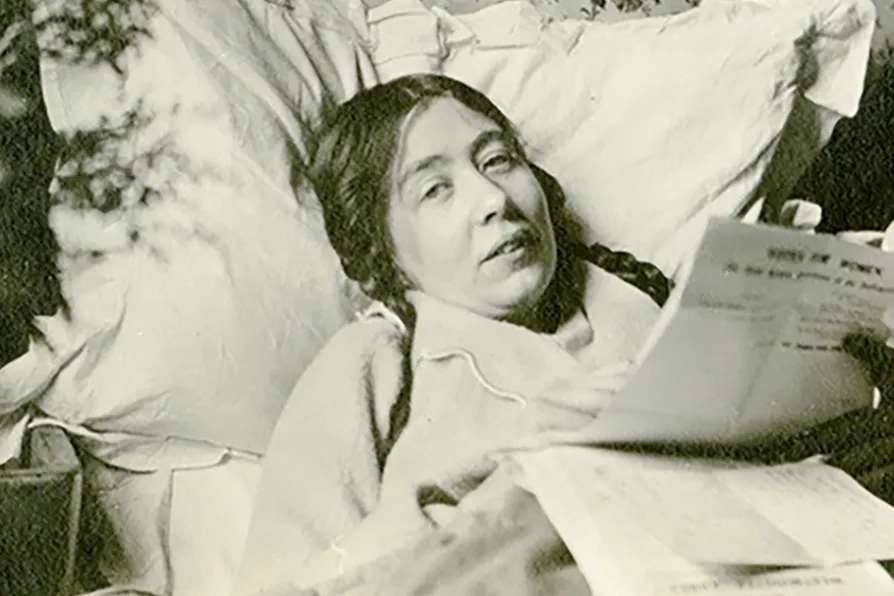SIMON PARSONS applauds an artist who rescues and rehumanises stories of women, the victims of violence, from a feminist perspective

 RESOLUTE: Sylvia Pankhurst recovering from her hunger strike in prison
[N Smith]
RESOLUTE: Sylvia Pankhurst recovering from her hunger strike in prison
[N Smith]
EXACTLY a hundred years ago, Sylvia Pankhurst was sentenced to six months in prison for publishing articles in the Workers’ Dreadnought urging London dockers not to load ships with arms to be used against the infant Soviet Union.
At her trial she declared: “Capitalism is a wrong system of society and it has got to be smashed — I would give my life to smash it.”
In Holloway prison she began writing a series of poems about the working-class women she met there. Because the authorities refused to allow her pen and paper, she had to use chalk to write what she called her “faithful lines upon inconsistent slate.”

LEO BOIX introduces a bold novel by Mapuche writer Daniela Catrileo, a raw memoir from Cuban-Russian author Anna Lidia Vega Serova, and powerful poetry by Mexican Juana Adcock













